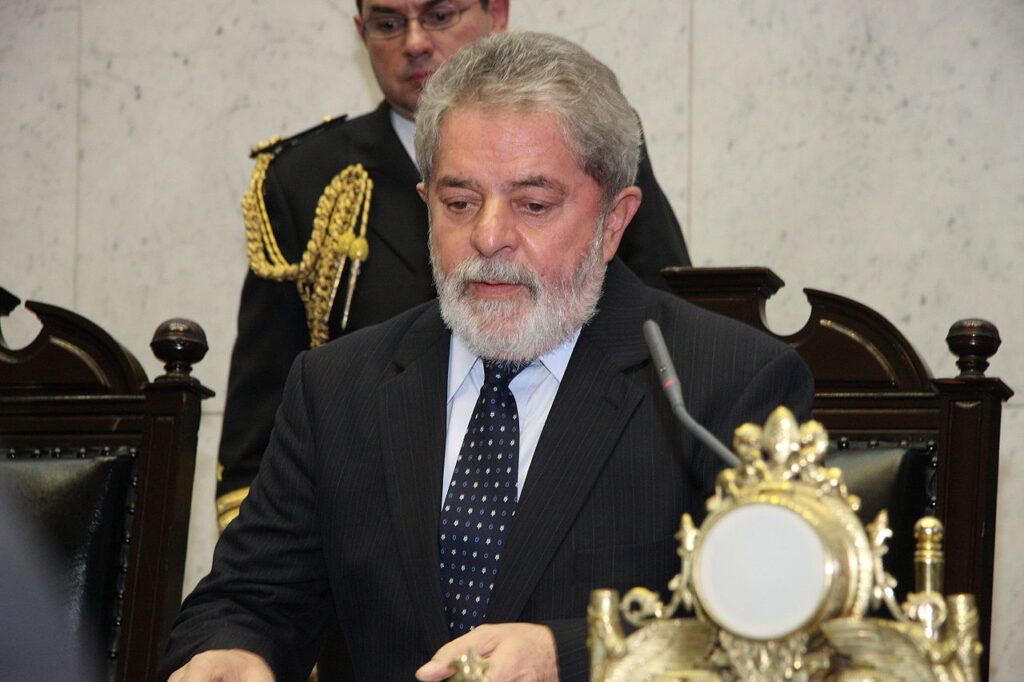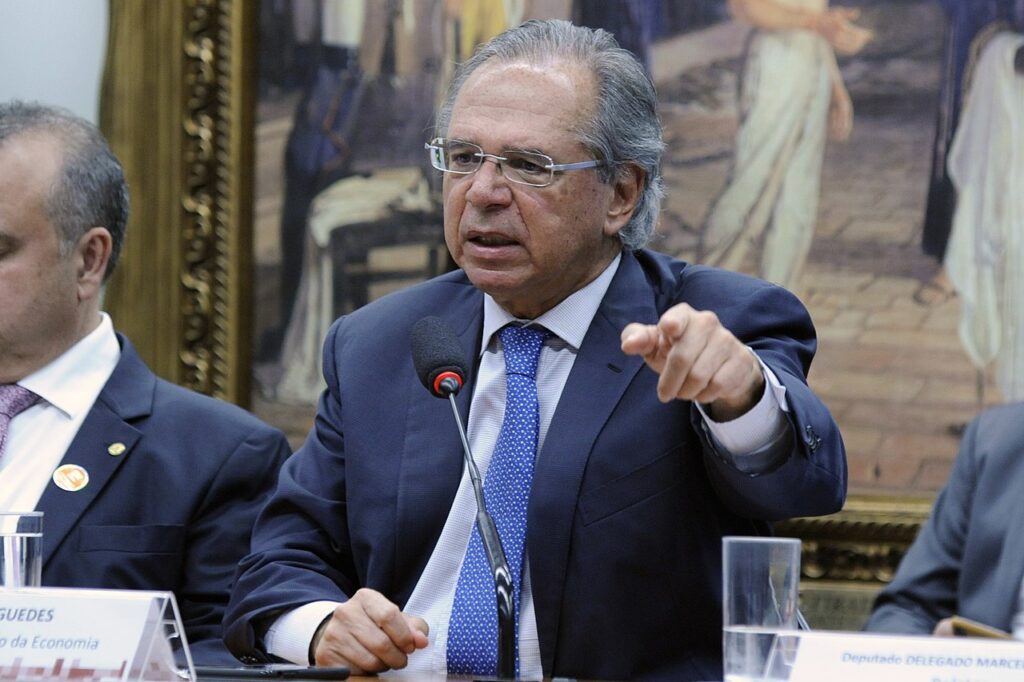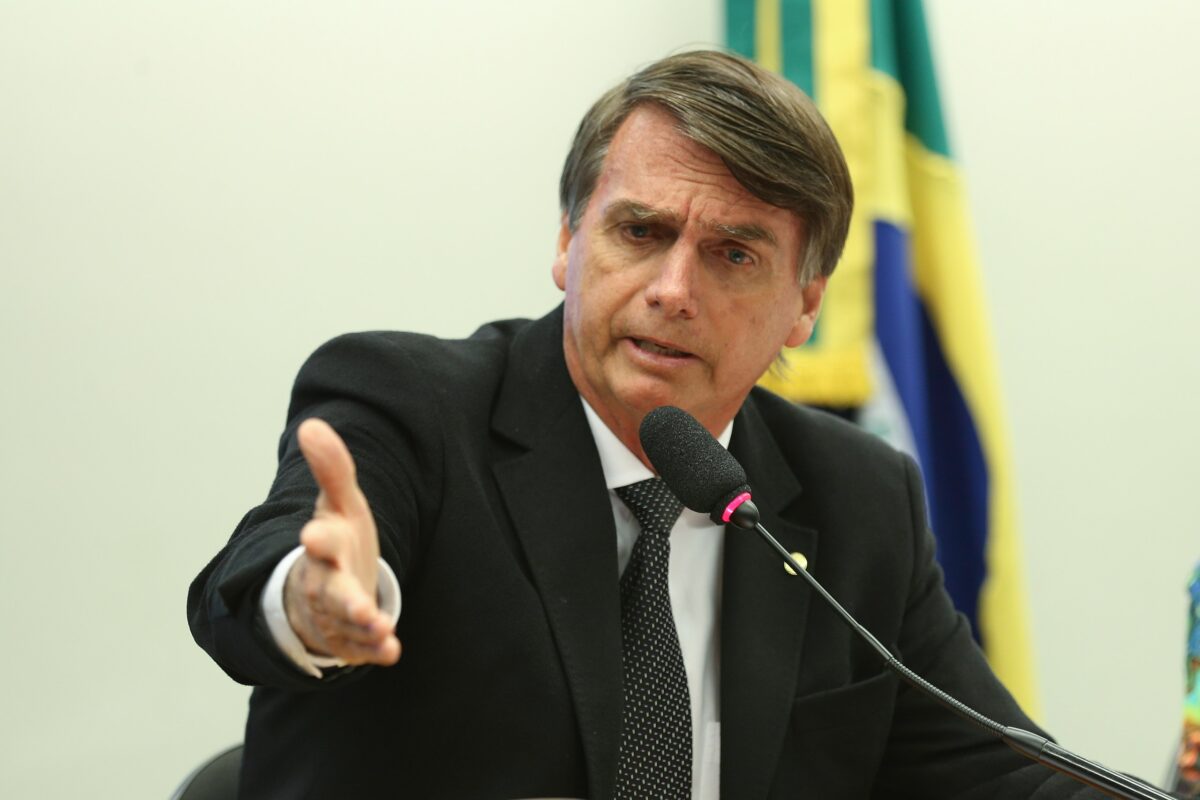Brazil’s Bolsonaro: Looking Behind the Façade
Too Big to Fail
It never takes long for Brazilian voters to regret their choice. After the restoration of democracy in 1985, some eighteen year went by before the country’s electorate turned to an outsider in near desperation over successive failed presidencies. Long discarded as a dangerous extremist by a nation that traditionally seeks compromise and prefers to avoid confrontation, Workers’ Party frontman Luiz Inácio ‘Lula’ da Silva was reluctantly dispatched to the Palacio do Planalto – the Brazilian seat of power.
Shedding most of his ideological baggage and embracing pragmatism instead, the former metalworker and union leader quickly managed to become the darling of both the nation and the global business community. Lula set Brazil on a path of accelerated growth that was to last, without too many hiccups, for some seven years. However, the second-coming of the ‘Brazilian Miracle’ even so ended in disappointment with the former president now languishing in prison, serving a twelve-year sentence for corruption and money laundering – a conviction recently upheld by the Federal Supreme Court. Another eight criminal cases against Lula are still pending.
Hoping to repeat the initial performance, if not necessarily the ending, of an administration headed by an outsider, Brazilians last year decided to look to the far right for answers. After a landslide victory, firebrand congressman Jair Bolsonaro on January 1 took the reins of power as the country’s 38th president, promising to deliver the nation from wayward leftist politicians and put Brazil of a path of prolonged growth. ‘Sustainable’ is not a word President Bolsonaro favours: he’s not that much into terms that imply political correctness, let alone carry environmental connotations.
Markets at first reacted with excitement. Years of political infighting, and the lingering effects of the 2008/9 financial meltdown and the tapering of the commodities super cycle, had left deep marks on the Brazilian economy. Lula’s Miracle 2.0 turned into a corrosive economic nightmare with bulging deficits all-round and a steep recession with the contours of a full blown depression. Considering that any change couldn’t possibly make matters worse, investors welcomed the Bolsonaro Administration with an optimism that bordered on the reckless – given the many unknowns surrounding the new president.
Reality Check
Throughout the lean years, most investors had remained inexplicably upbeat on Brazil, pushing the benchmark Bovespa Index upwards from an early 2016 low of around 38,600 to well above 95,000 in late March, just off its all-time high slightly north of 100,000. After Mr Bolsonaro secured his mandate in the October 28 run-off election, domestic sentiment improved noticeably. According to a barometer maintained by the Getúlio Vargas Foundation, consumer optimism reached a seven-year high in February. Brazilians may, however, be in for a shock for the think tank also noted that the gap between expectation and reality has never been larger. Before long, a reality check may occur.

Unemployment (11.6%) is no longer falling and notwithstanding consumer optimism, retail sale volumes late last year suddenly dropped by 2.2%. Car production slumped as well, retreating ten percent year-on-year in January. This prompted Itaú Unibanco to shave half a percentage point off its 2019 growth forecast which now stands at two percent. The construction sector, one of the main pillars of the economy, is unable to find its groove after the government scaled back infrastructure investments in the wake of the ‘Car Wash’ investigation that uncovered and mapped a disconcertingly wide network of collusion between builders and politicians. Employment levels at construction firms shrank by about forty percent and are unlikely to recover soon as the government budget for infrastructure investment has been all but depleted.
Although the courts are actively pursuing cases against politicians, captains of industry, civil servants, and others who monetised their power, the prevalence of corruption throughout society, and deeply ingrained in the national psyche, is hampering development. Over the years, a vast legal framework has been erected to fight corruption. The resulting bureaucratic labyrinth, almost Kafkaesque in its scope, does not contribute to an improved business climate.
The World Economic Forum (WEF) in 2018 ranked Brazil 136 out of 137 for burden of government regulation. For decades on end, private employers have complained about compliance costs spiralling out of control, yet no government was able to address the issue. Businesses also suffer from overly complex social security and pension laws and regulations which add almost sixty percent to the net payroll.
In a global survey, the World Bank found that Brazilian corporations spend almost 2,000 hours to prepare their annual tax filings compared to a global average of 236 hours. The number still represents an improvement of sorts: in 2013, Brazilian companies needed all of 2,600 hours to comply with tax law. Though some 600 hours have been slashed off, Brazil still tops the ranking of countries according to the fiscal compliance burden placed on business. Bolivia comes in second. Here it takes companies just over a thousand hours to properly complete their tax returns.
Clean Sweep
When even the initially holier-than-thou Lula falls for the lure of easy money, nobody is truly safe. President Bolsonaro, elected to execute a clean sweep of Brasília, promised voters a policy of zero tolerance for corruption. Yet, three members of his cabinet have been implicated in ongoing affairs whilst his senator son Flávio caused an uproar, and drew unwanted attention to his past dealings, after he requested a Supreme Court judge to suspend an investigation into a series of suspicious transactions involving an aide. Senator Flávio Bolsonaro reminded the Supreme Court that as a member of the upper house he enjoys full legal immunity.
The case centred on a sum of about $320,000 that moved in and out of a bank account registered to Fabrício Queiroz, the long-time driver and aide of the ‘first son’. Some of the money that appeared in Mr Queiroz’ account ended up being transferred the Michelle Bolsonaro, now Brazil’s first lady – bringing the dubious transactions uncomfortably close to the presidency. Investigators noted that over a period of three years some $3.5 million moved through the aide’s bank account.
The suspicious transfers came to light as police and prosecutors took a closer look at the dealings of Rio de Janeiro state legislators who may have lined their pockets with relatively small sums via the hiring of phantom office staff whose non-fictitious salaries they are alleged to have pocketed. Mr Queiroz came into focus after his daughter was found to be on the payroll of then-state legislator Flávio Bolsonaro, now a senator, yet never reported for work.
Anti-corruption watchdog Transparência Brasil (TP) does not expect the Bolsonaro Administration to live up to the president’s campaign promises: “It would seem to be business as usual and we do not anticipate big changes,” says TP-director Manoel Galdino.
During the election campaign the president frequently lambasted the misuse by state and federal legislators of the legal immunity, calling it a ‘garbage’ provision. Earlier this year at the annual summit of the World Economic Forum in Davos, Switzerland, President Bolsonaro emphasised his administration’s commitment to both stamping out corruption and reducing the bureaucratic burden imposed of business. The ‘Trump of the Tropics’ also told his audience that he is determined to rid Brazil of ‘left-wing ideology’ and transform the country into a profit machine: “This is a turning point for my country. Ideological bias will be purged from our policies.”
In Davos, President Bolsonaro received a lukewarm welcome. He represents in many ways the antithesis of the Davos Man – liberal, global, and, above all, politically sensitive and correct. Ending his brief statement to an audience more curious than convinced with his motto ‘God above all’, the Brazilian president drew a hesitant and embarrassingly brief applause. His nationalist and paternalist style does not sit well with the global elite; nor does his apparent lack of interest in environmental causes.
Fishy Fine
Only hours after his inauguration, President Bolsonaro signed a decree transferring the administration of indigenous reserves and the ‘quilombos’ founded by maroons, runaway slaves, in the 18th and 19th centuries to the Ministry of Agriculture which has been entrusted to Tereza Cristina who for years headed the rural caucus in congress and is considered a representative of the agribusiness sector.
President Bolsonaro repeatedly questioned the territorial extension of protected lands and has suggested opening vast tracts to mining and agriculture. Some thirteen percent of the country’s landmass has been set aside for about one million native people. The internationally well-respected federal agency for indigenous affairs Funai, which is recognised for its anthropological expertise, has been reassigned from the ministry of Justice to the politically insignificant ministry of Women, Family, and Human Rights which is controlled by an evangelical pastor.
Brazilianist observers suspect that President Bolsonaro may perhaps harbour a slightly mischievous streak: Funai has long been at odds with evangelical missionary societies and other proselytisers trying to surreptitiously contact isolated tribes and communities. The agency has expelled countless missionaries from the reserves it used to manage, sometimes even prosecuting individual pastors for trespassing.
President Bolsonaro has also degraded the federal environmental protection agency Ibama but not before demanding the nullification of a $2,500 fine he received in 2012 – but never paid – whilst fishing illegally in a marine reserve. The officer who wrote out the ticket, and who had since progressed through the ranks to become head of Ibama’s Air Operations Centre, was fired from his job a few weeks after President Bolsonaro took office.
Much upset at being fined, Mr Bolsonaro in 2013 tried to introduce legislation that would have prohibited Ibama officials from carrying firearms. The congressman, who already at that time favoured a loosening of restrictions on gun ownership, withdrew his initiative after admitting that he may have targeted Ibama to settle a personal score.
Meanwhile, the government has unveiled plans to privatise most of the country’s iconic national parks such as the Foz de Iguaçu reserve which straddles the tri-country border with Paraguay and Argentina and includes one of the world’s largest waterfalls. The list of parks to be auctioned off also includes the Fernando do Noronha island, with its almost untouched underwater reserve, as well as the Itatiaia, Pau Brasil, and Chapada dos Veadeiros nature reserves.
Hesitant Start
Just a few months in, the Bolsonaro Administration has come under increased pressure to take the stalled legislative initiative and jumpstart the economy. According to the Getúlio Vargas Foundation, the country is close to registering its worst economic decade since GDP measurements begin in 1901. If forecasts remain unaltered, growth between 2011 and 2020 will have averaged just 0.9% annually – far below the level needed to keep up with population growth.
Whilst the administration celebrated February’s job figures, which showed that more than 173,000 jobs had been added to the economy, as an early sign of recovery, large corporates are much less upbeat. Swiss pharmaceutical company Roche announced the shuttering of its production facilities in Brazil which an expected loss of 500 jobs. According to a statement by the company, its Rio de Janeiro factory is no longer financially sustainable.
Colombian airline Avianca also closed its Brazilian operation, allowing its local subsidiary Avianca Brasil to file for bankruptcy in December. In April, the airline stopped servicing its 21 routes and dismantled its offices. In February, Ford Motors closed a truck manufacturing plant in São Bernardo do Campo, an industrial city adjacent to São Paulo, with the loss of 3,200 jobs. Workers at a nearby Volkswagen facility accepted a steep pay cut to keep their factory open. Most large corporates have now scaled back their investment plans, awaiting developments in Brasília, particularly the ongoing tug-of-war between congress and the administration over pension and social security reform.
Dealing with Congress
Late March, President Bolsonaro warned that a failure to write the proposed reforms into law would ‘bankrupt’ the country whilst economy minister Paulo Guedes said he would quit if his recommendations are not followed. Both Messrs Bolsonaro and Guedes lost their patience after extended negotiations with congress failed to yield any discernible result or agreement. Instead, lawmakers overwhelmingly supported a surprise move by a few of their peers to assert and seize control over the federal budget. Earlier, a motley collection of eleven political parties demanded that the administration tweak its reform plans in order to spare rural, elderly, and disabled people.

Whilst the speaker of the Chamber of Deputies denied that the power grab would handicap the government as it tries to usher its reform plans through congress, markets disagreed and promptly plunged in unison. The Bovespa stock market index nosedived 8.5% in one week as the Brazilian real lost 2.3% of its value vis-à-vis the US dollar. The Bovespa has since clawed back to recover some of its lost ground.
The Chamber of Deputies is aware that President Bolsonaro’s convening power is waning and with it his ability to set and drive the national agenda. Barely four months into his four-year term in office, the administration suffers from the lowest approval rating at this early stage of any presidency since the return of democracy in the early 1980s. Polling agency Ibope found that just 34% of the people it queried described President Bolsonaro’s performance as either ‘excellent’ or ‘very good’ – down from 49% in January. Almost one in every four Brazilians now consider the present government ‘terrible’ or ‘bad’. Interestingly, almost 44% of the people interviewed by Ibope do not think that the president can be trusted to deliver on his campaign promises.
The moment to enact a broad reform agenda may thus already have passed. Investors are becoming slightly less confident that the president, once properly beset by a number of ‘affairs’ swirling around Brasília, may prove unable to govern effectively. Their concerns are partially grounded in the experience of President Bolsonaro’s predecessor, Michel Temer, whose reform plans were also scuppered by accusations that he authorised the payment of bribes to members of congress in return for their support. Though the president survived the resulting scandal, his policy initiative did not.
Market watchers agree that the Brazilian stock market has so far proved fairly firm thanks to the optimism of local investors. Since last year’s final quarter, foreign investors have exited the market shrinking their exposure by at least $3 billion. Markets remain, however, jittery and react instantly to any developments in the clash between the president and congress. On March 26, the Bovespa Index retreated 7,000 points in mere hours after the Rodrigo Maia, chairman of the Chamber of Deputies, told the president to get off Twitter and start rallying support for his plans in congress. An attempt to calm frayed nerves backfired when Economy minister Paulo Guedes refused to engage with congress and dispatched his technical team instead. After howls of indignation, Mr Guedes turned up next day to reboot the negotiations.
Going for Twelve Rounds
Notwithstanding his early setbacks, President Bolsonaro shows no signs of giving up the fight to save his reforms plan – and his administration. If past experience offers any insights, it may be that Brasília politics favour compromise. Minister Guedes knows this and merrily admits that he over asked slightly in to get a result close to the one he can live with. However, no member of congress will want to be seen to take away pension entitlements without offering something of roughly equal value in return. As President Bolsonaro’s predecessors know only too well, this give and take is a zero sum game.
The resulting quandary is how to boost Brazil’s economic output in an environment that does not seem to allow for meaningful expenditure cuts. One solution would be to expand GDP, and narrow the seven percent fiscal gap, by focussing on policies that seek to improve the overall investment climate and make Brazil a more welcoming place for foreign businesses whilst also easing the administrative burden faced by domestic corporations. The Bolsonaro Administration is fully aware that it enjoys considerable leeway to do just that.
Scrapping ‘leftist’ policies that hamper business growth implies doing away with often cumbersome legislation that was put haphazardly into place to combat illicit practices and discourage unhealthy liaisons. Most of these checks are of little practical value and may easily be discarded. Finding economic growth is essential at this crucial stage of Mr Bolsonaro’s presidency: negotiations with congress are usually much easier to conduct when the country is growing at a solid clip. Administrations beset by salacious affairs and suffering from slow or negative growth soon find that congress will assert its considerable powers.
President Bolsonaro is not the type of leader who will be satisfied to command a lame duck administration. He should also not be dismissed as all-talk no action. As a long-time backbencher he is well aware of the way congress operates and how to negotiate with both political adversaries and reluctant allies. Though his administration is currently going through a dip, Jair Bolsonaro is neither down nor out. Investors taking a breather on the sidelines waiting for a breakthrough on pension reform may be disappointed, but those brave enough to jump in as soon as other fronts start reporting progress could be in for a windfall. Brazil may look funny from afar, it seldom disappoints. It is a country too big to fail.
Cover photo: President Jair Bolsonaro of Brazil.
- © 2016 Photo Jair Bolsonaro by Fabio Rodrigues Pozzebom / Agência Brasil
- © 2011 Photo Luiz Inácio ‘Lula’ da Silva by Biblioteca Congreso Nacional de Chile
- © 2019 Photo Paulo Guedes by Câmara dos Deputados


